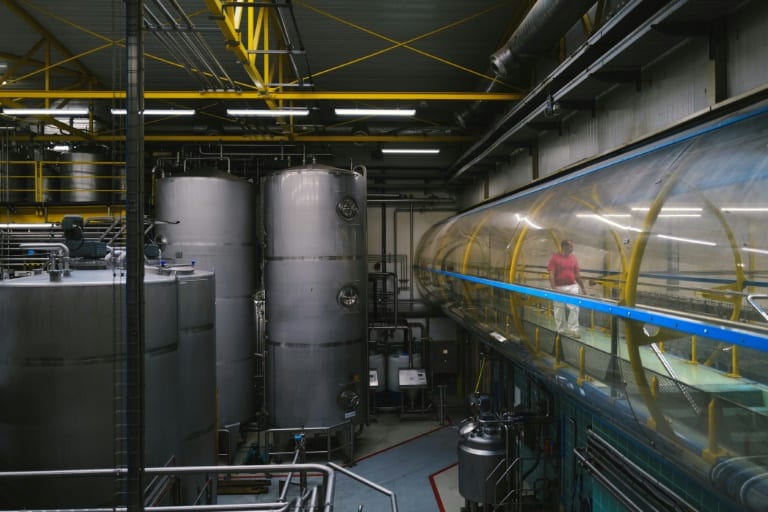France’s favourite condiment, Dijon mustard, is hard to find these days, with signs on supermarket shelves warning the lucky few who spot jars that they can only take one home.
A heatwave across the ocean in Canada, the world’s top mustard seed producer, is to blame for the drastic shortage that has dragged on for months in France.
Canada supplies around 80 percent of the mustard seeds used by French makers of the spicy condiment, the rest coming mostly from Burgundy, the region that surrounds Dijon.
But a drought slashed the Canadian harvest by half in 2021.
Now French mustard makers are aiming to boost production at home in Burgundy.
“It’s very important to increase that share so we can face weather risks that differ from one country to the other,” Luc Vandermaesen, president of the Burgundy Mustard Association, an industry group, told AFP.
“We can’t put all our eggs in one basket,” said Vandermaesen, who is also the chief executive of France’s third biggest mustard maker, Reine de Dijon (Queen of Dijon).

Double the price
The Dijon region has been famous for its mustard seeds since the Middle Ages, but production has been decimated by pests as chemicals used to kill them have been banned.
Output was divided by three between 2017 and 2021, falling from 12,000 tonnes to 4,000 tonnes.
In June, local producers were urged to more than double the area planted with mustard seeds to 10,000 hectares.
“The Canadian problems revived the importance of the Burgundy sector,” said Fabrice Genin, president of the Association of Mustard Seeds Producers of Burgundy.
As an incentive, mustard makers agreed to pay 2,000 euros ($2,008) per tonne for Burgundy seeds in 2023, up from 1,300 euros last year and more than double what they paid in 2021.
The appeal appears to have worked, with 10,000 hectares planned for mustard seeds, said Jerome Gervais, a mustard expert at the chamber of agriculture in Burgundy’s Cote d’Or department.
The number of seed producers jumped from 160 to more than 500, he added.
“It’s more than hoped,” Gervais said.
‘Revenge’
Francois Detain, a farmer in Agencourt, gave up mustard seed production in 2019 after his fields were wrecked by a dry spring and an insect infestation.
But the price offered for mustard seeds allowed him to bring them back, even though Russia’s invasion of Ukraine has made fertilisers more expensive.
A drop in the prices of grains and oilseeds has also made mustard seeds more attractive.
“It’s sort of a revenge for us to be able to replant a local crop,” Detain said.
Shipping costs — which have soared due to supply chain bottlenecks since Covid pandemic lockdowns were lifted — have also given an edge to Burgundy seeds over those from Canada.
By next year, Burgundy should be producing 15,000 tonnes of mustard seeds, meeting 40 percent of the needs of mustard makers, Gervais said.
“(Store) shelves should be replenished in October,” Vandermaesen said.
“The shortage will be completely over in early 2023. We are very confident for Christmas.”
lv/ag/mpm/lth/rox/aha


